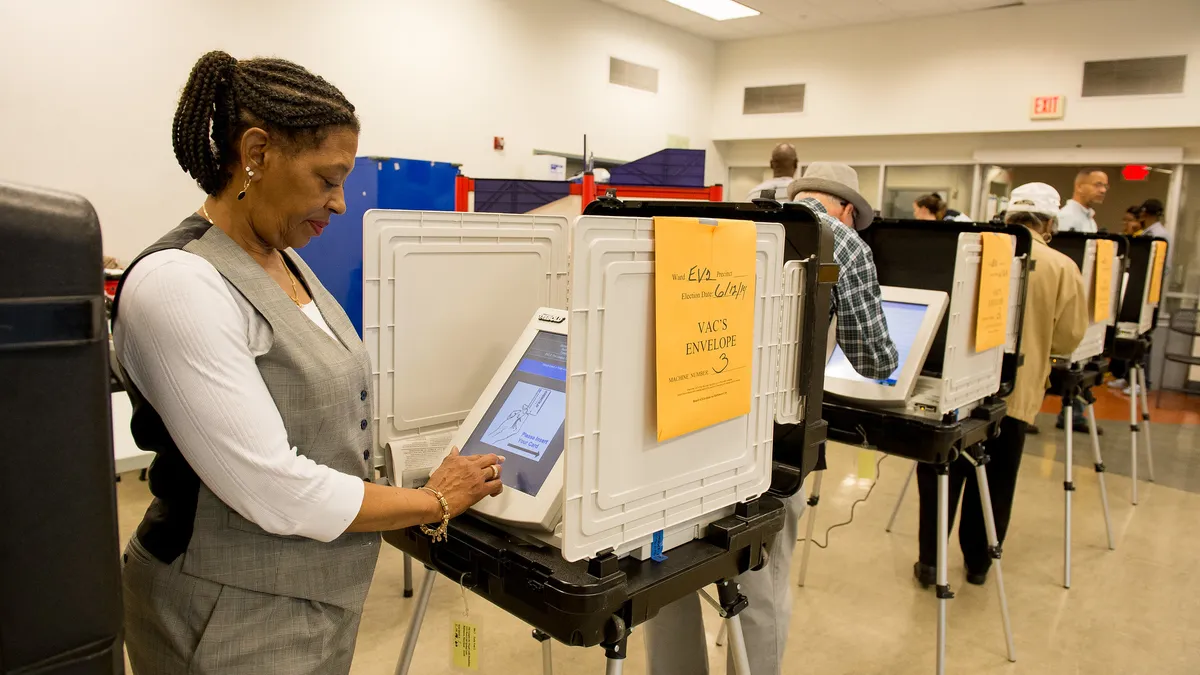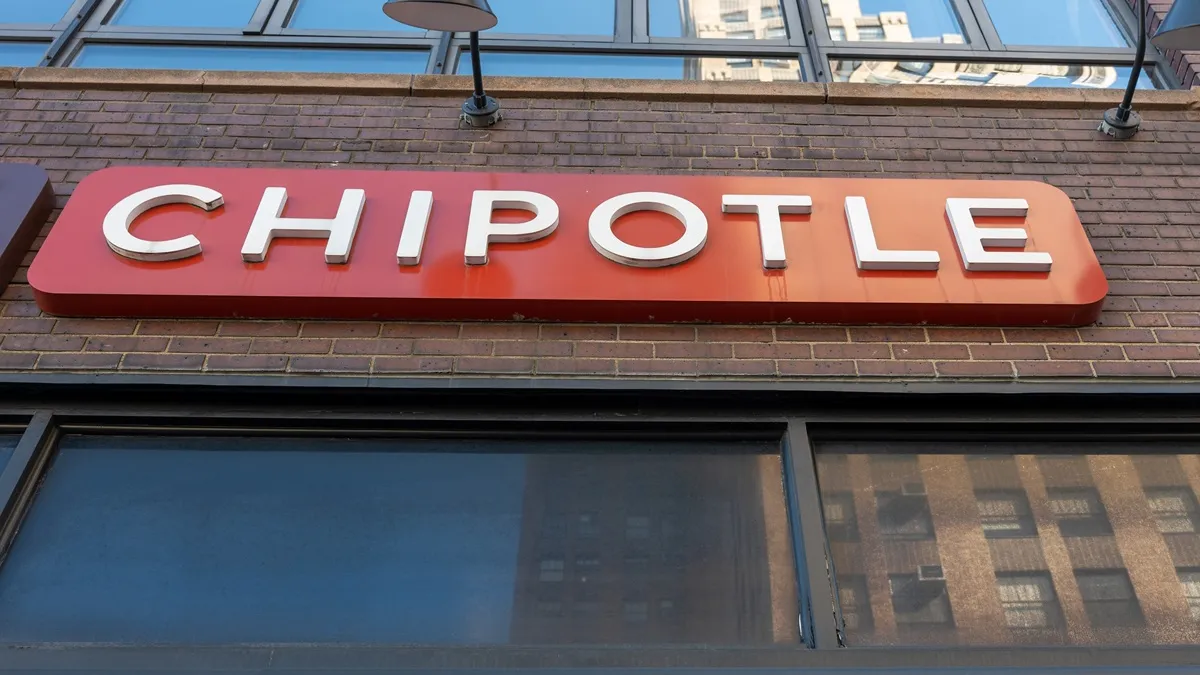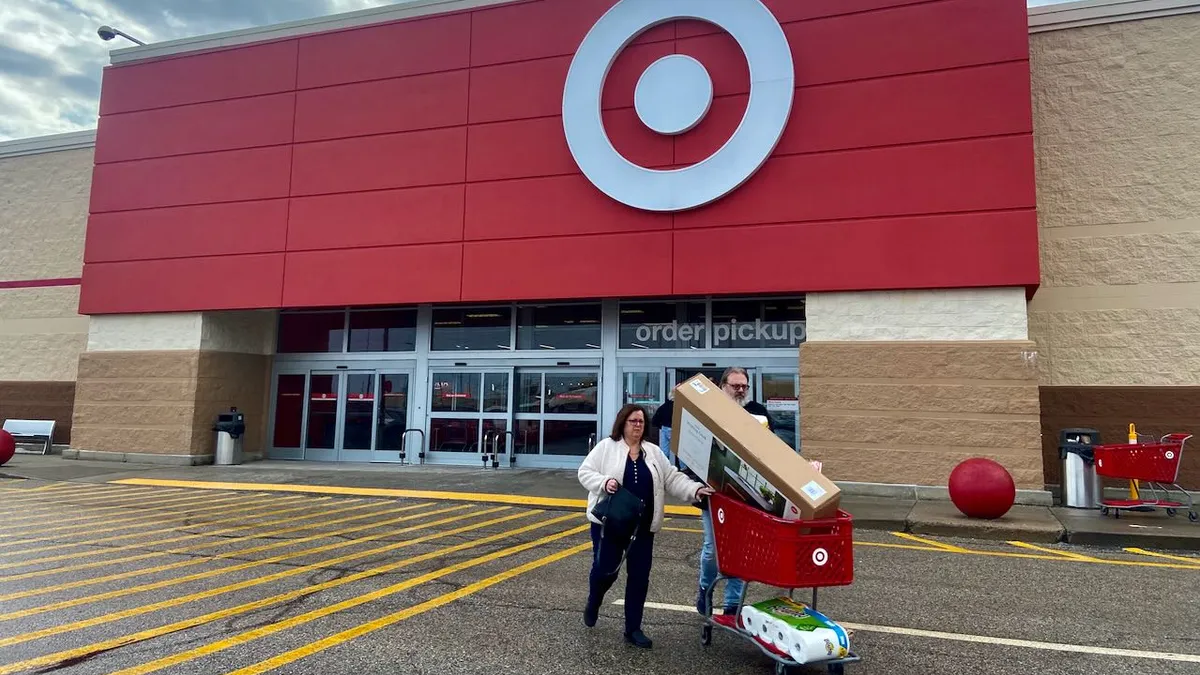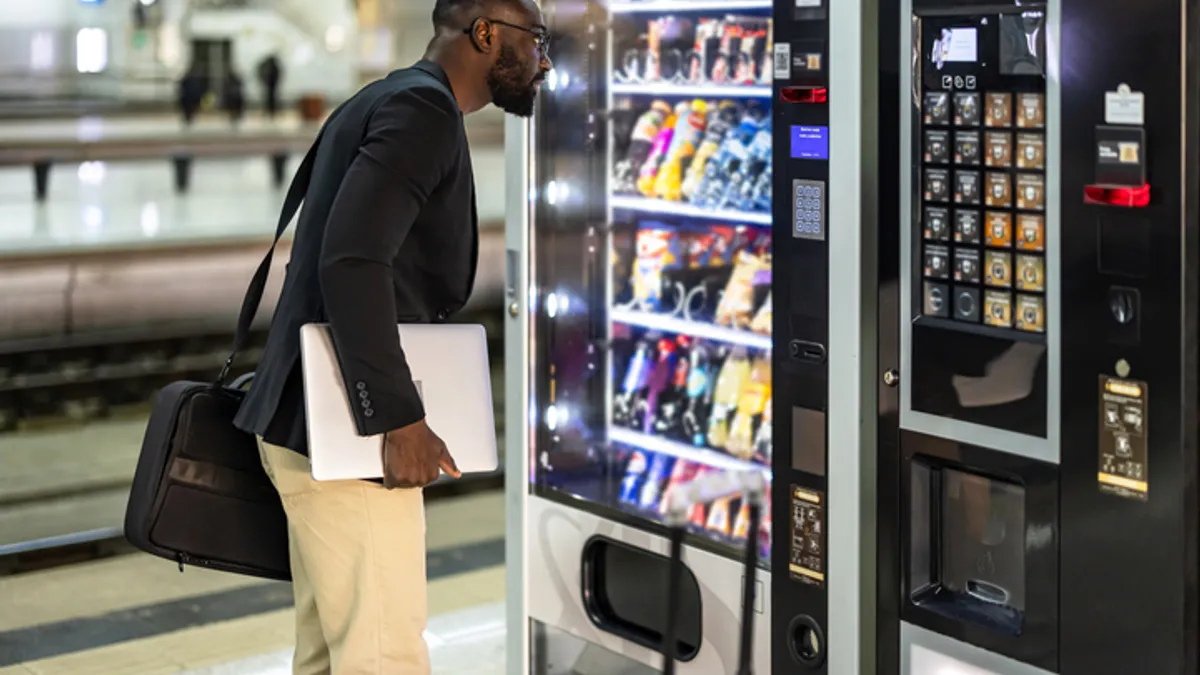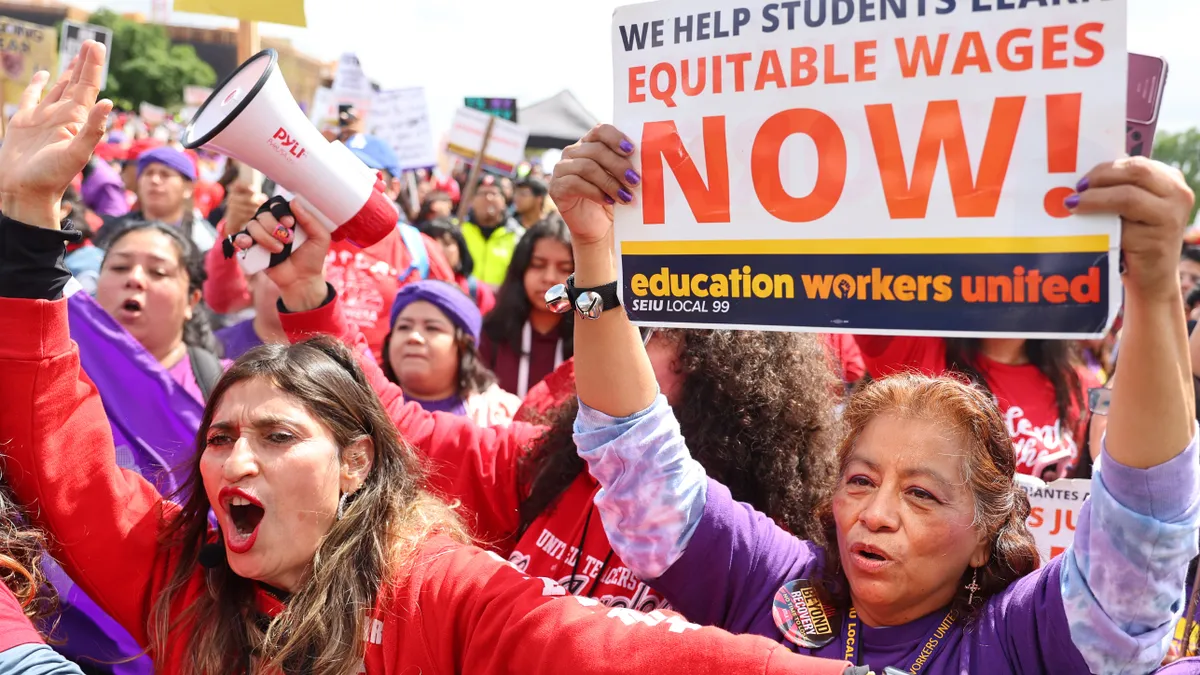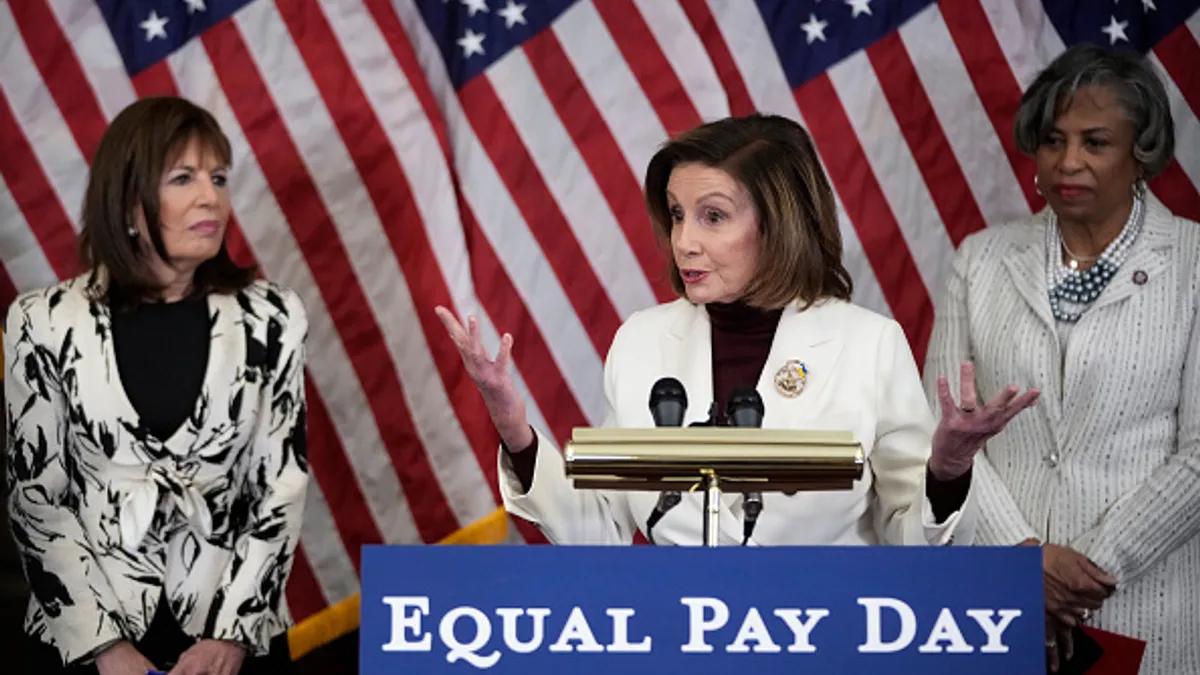Many states guarantee workers some form of unpaid or paid time off to vote, even though Election Day isn't a U.S. federal holiday.
But this voting season, taking place amid the COVID-19 pandemic, may require additional shifts. There may be a need for states to increase the voting time allowed during a workday to comply with safety protocols, among other things, according to Rich Fuerstenberg, a senior partner at Mercer, a human resources consulting firm. Fuerstenberg and representatives from companies that give employees time off to vote discussed with HR Dive in-person voting, mail-in ballots and empowering employees to use their voices.
Time to Vote initiative
Corporate employees at Levi Strauss & Co. will receive five hours of paid time off on Election Day, Nov. 3, to vote, Tracy Layney, senior vice president and chief human resources officer at Levi Strauss & Co., told HR Dive in an email. "Retail employees are also given paid time to vote and the option to coordinate a flexible schedule with their manager," Layney said. "In addition, we also offer employees five hours of paid time off per month to volunteer for campaigns, canvassing or other voter engagement efforts, as we did for the midterms in 2018."
Ahead of the 2018 elections, Levi Strauss & Co. partnered with Patagonia to launch Time to Vote, "a diverse coalition of companies that came together to help ensure employees had time to vote," Layney said. The nonpartisan initiative represents "more than 2 million workers," according to a Feb. 19, 2020, announcement, with plans to "more than double in size." Paid time off to vote is a priority for CEOs and business owners who join the coalition.
"Voting is a fundamental tenet of democracy," Layney said. "We believe that the more people who feel empowered to use their voice, the stronger this country will be. But even in the best of times, many Americans struggle to get time off work to vote."
Time to Vote is again activated in 2020 to "make it as easy as possible for our employees to vote, especially given the unique challenges voters are facing this year," Layney said. "And we're asking other employers to join us so that we can help contribute to a strong turnout this election season." In 2018, Levi Strauss & Co. made employees aware of the benefit through in-person events, Layney said.
However, with store closures to prevent the spread of the novel coronavirus, the company pivoted to virtual communications. There is an online voting hub for employees with voting information and resources on how to volunteer and get involved in the election season, Layney said. "We're in frequent contact over email with the latest updates on how employees can use their voice — and their time — to participate in our democracy," she said. Before the pandemic, "Levi's had already been taking greater control of its own retail operations, including through e-commerce, so it's not all that surprising that its retail and manufacturing operations were spared job cuts," according to Retail Dive.
Farmers Insurance, a coalition participant, "places a high value on our people's ability to exercise their civic duties and participate in the democratic process," Trevor Chapman, a Farmers Insurance spokesperson, told HR Dive in an email. "We believe everyone at Farmers should feel empowered to make a difference in their communities across the country and should not have to choose between earning a paycheck and voting," Chapman said.
The voting policy "has been in place for several years" and gives employees up to two hours of paid time to vote, he said. The policy is "regularly communicated to employees via internal communications platforms and conversations with managers; and it's also captured alongside all other company policies which all our employees can access online," Chapman said.
Tweaks to timeframe for in-person voting
State laws typically require employers to allow employees "up to two hours of paid or unpaid time off to vote at the beginning or end of their shift/workday," Fuerstenberg, who is based in New York, told HR Dive in an email. "It is possible that with added safety precautions leading to longer than normal wait times to vote, two hours may not be enough."
"It is unclear what actions states will take," Fuerstenberg continued. "Some may require employers to provide employees with additional time off or move from an unpaid to a paid mandate. Or, states may expand early voting or mail-in ballots as an alternative, limiting the need for time off for in-person voting on Election Day."
Two kinds of mail balloting systems exist in the U.S., according to The Brookings Institution. "Some states have what are called universal 'vote by mail' in which states mail ballots to all voters," the public policy organization stated in a June report. "In most states, however, vote by mail is through absentee balloting in which the voter must request an absentee ballot."
As with states, there's also uncertainty when it comes to the actions of employers, Fuerstenberg said. Employers have adjusted policies in response to calls for racial justice, for example. "We recently saw a large number of employers quickly respond to protests by adding Juneteenth as a paid holiday," he said. "It would not be shocking to see employers respond similarly."
As Nov. 3 gets closer and concerns regarding wait times and safety "limit the ability of employees to vote, it may be added as a paid day off or employers may permit additional time off for employees to vote," Fuerstenberg said. Companies will perhaps make voting time up to four hours instead of up to two hours, he said.
"We've recently had a number of employers ask us about this issue and will continue to monitor what employers and states do," Fuerstenberg added.
Employers that lead with economics and empathy amid these times of crisis will be rewarded with loyalty from workers, candidates and customers, Mercer previously told HR Dive. The actions employers take "over the next few months, especially the longer-term strategies put in place, could determine how they fare over the next 12-18 months," Edith Clee, partner at Mercer, said in a statement.
In 2020, Levi Strauss & Co. is "also focused on how we can reduce obstacles to voting amid the pandemic," Layney said. "In addition to paid time off, we're also providing employees with opportunities to become more involved in voter turnout initiatives, including training as poll workers or helping senior citizens and vulnerable populations with voting early or by mail."



